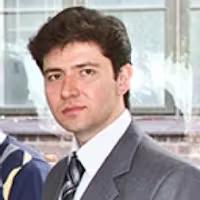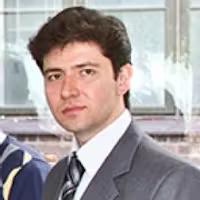Master essential sustainability concepts and approaches to drive positive change across disciplines.
Master essential sustainability concepts and approaches to drive positive change across disciplines.
Explore key concepts and approaches for building a sustainable future in this comprehensive course. Designed for professionals and learners from all disciplines, this course provides a solid foundation in sustainability science, systems thinking, and innovative approaches to addressing global challenges. You'll learn about crucial topics such as the Sustainable Development Goals, circular economy, transformative governance, and the role of innovation in sustainability. Through a combination of theoretical frameworks and real-world case studies, you'll develop the skills to apply sustainability concepts to your specific field of interest or research.
4.7
(107 ratings)
6,730 already enrolled
Instructors:
English
What you'll learn
Understand key concepts in sustainability science and their practical applications
Apply systems thinking to complex sustainability challenges
Explore the principles of circular economy and its role in sustainable development
Analyze the importance of innovation in driving sustainability solutions
Learn about scenario planning and modeling for sustainable futures
Develop skills to integrate environmental, social, and economic perspectives in sustainability
Skills you'll gain
This course includes:
4.5 Hours PreRecorded video
5 quizzes
Access on Mobile, Tablet, Desktop
FullTime access
Shareable certificate
Closed caption
Get a Completion Certificate
Share your certificate with prospective employers and your professional network on LinkedIn.
Created by
Provided by

Top companies offer this course to their employees
Top companies provide this course to enhance their employees' skills, ensuring they excel in handling complex projects and drive organizational success.





There are 5 modules in this course
This course offers a comprehensive introduction to key concepts and approaches in sustainability science. It is structured into five modules, each focusing on critical aspects of working towards a sustainable future. The course begins with fundamental sustainability concepts, including strong and weak sustainability, resilience, and planetary boundaries. It then progresses to systems thinking and its application in sustainability challenges. The third module explores drivers for sustainability, including circular economy and policy frameworks. Innovation in sustainability is the focus of the fourth module, covering technological, social, and institutional innovations. The final module introduces scenario planning and modeling for sustainable futures, with emphasis on climate change, biodiversity, and data science applications. Throughout the course, connections are made to the Agenda 2030 for Sustainable Development, providing a global context for sustainability efforts.
Key concepts to frame and communicate sustainability
Module 1 · 6 Hours to complete
Sustainability through a systems lens
Module 2 · 3 Hours to complete
Drivers for a sustainable future
Module 3 · 2 Hours to complete
Innovation and Sustainability
Module 4 · 3 Hours to complete
Working with scenarios
Module 5 · 2 Hours to complete
Fee Structure
Payment options
Financial Aid
Instructors
Leading Research in Geospatial AI for Sustainability and Urban Planning.
Ali Mansourian is a Professor of Geomatics at Lund University, specializing in Geospatial Information Science (GIS) with a focus on Geospatial Artificial Intelligence (GeoAI). His research addresses sustainability, health, spatial epidemiology, disaster management, and urban planning. He serves as a council member for the Association of Geographic Information Laboratories in Europe (AGILE) and is part of the United Nations Global Geospatial Information Management (UN GGIM) Academic Network. Additionally, he contributes to two OGC Domain Working Groups focused on "Artificial Intelligence in Geoinformatics" and "Blockchain and Distributed Ledger Technologies." Mansourian has coordinated multiple EU projects concerning sustainability and environmental issues.
Innovative Economist Focused on Sustainability and Conservation
Cristina Chaminade is a distinguished economist with a Bachelor's degree in Economics focused on Development Economics and a PhD specializing in the Economics of Innovation. With over thirty years of experience, she operates at the intersection of sustainability, innovation, and wildlife conservation, particularly in the Global South. Her extensive career includes research, capacity building, and consulting for international organizations, where she has developed innovative solutions for sustainable development and regional transformations.
Testimonials
Testimonials and success stories are a testament to the quality of this program and its impact on your career and learning journey. Be the first to help others make an informed decision by sharing your review of the course.
Frequently asked questions
Below are some of the most commonly asked questions about this course. We aim to provide clear and concise answers to help you better understand the course content, structure, and any other relevant information. If you have any additional questions or if your question is not listed here, please don't hesitate to reach out to our support team for further assistance.





